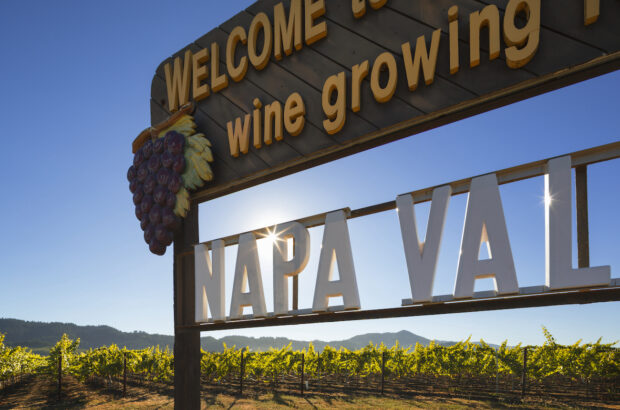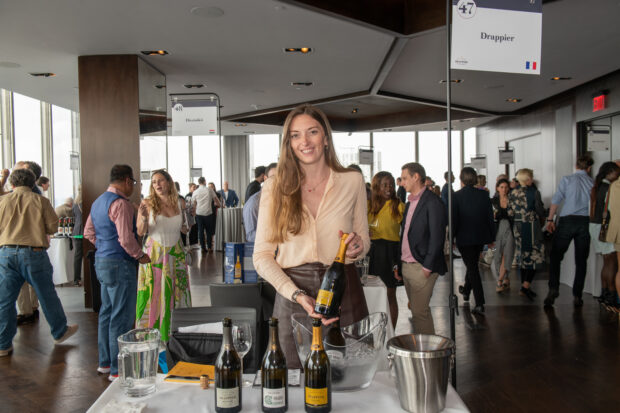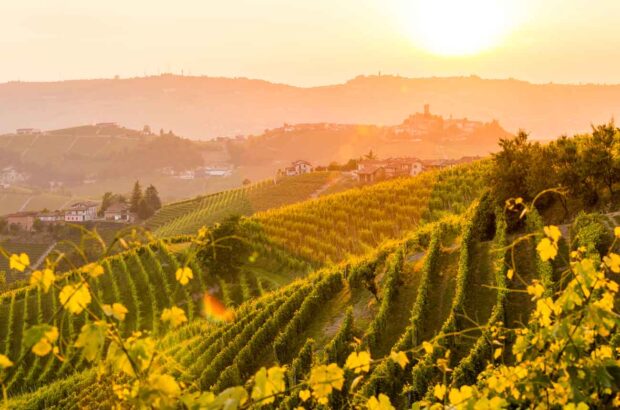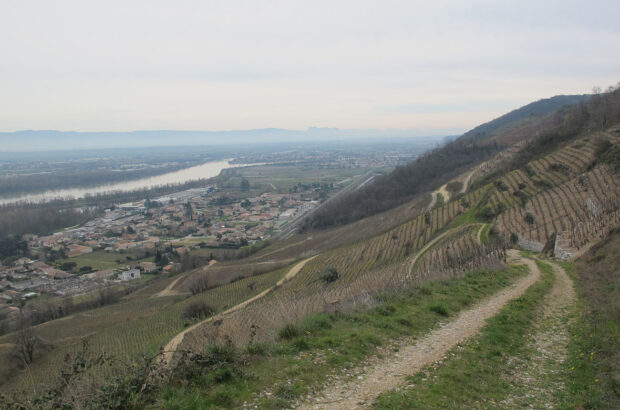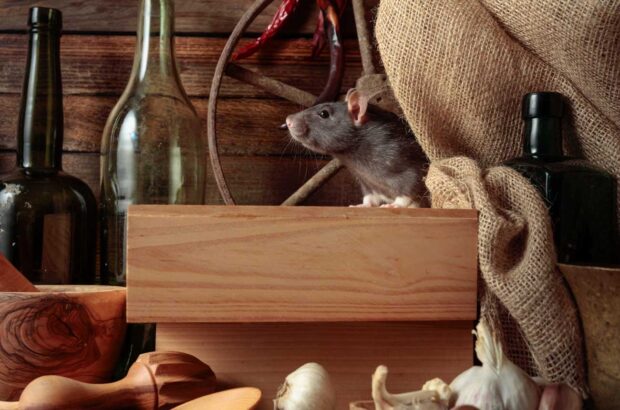Plan your trip with this in-depth Jura travel guide, with original copy by Sue Style and now updated with new recommendations for great restaurants and where to stay.
Jura travel guide: about the region
If you’d asked anyone about France’s Jura region and its wines a few decades ago, chances are you would have received a blank stare.
A few enlightened souls might have muttered something about vin jaune, or dredged up memories of faded signs for Henri Maire’s Vin Fou, affixed to the sides of dilapidated barns in the remoter parts of rural France.
Today, though, the name Jura is on many lips. The wines are enjoying cult status on both sides of the Atlantic. Wine educator Wink Lorch devoted a whole book to Jura wine in 2014, which has received critical acclaim.
How come this secret pocket of vineyards, sandwiched between Burgundy and Switzerland, has swung into the spotlight in recent years?
A contributory factor is certainly the explosion of interest in ‘natural’ wines among a section of the wine-buying public, a movement that’s well represented in the Jura.
Another is that alongside Chardonnay and Pinot Noir – whose Jura manifestations are, by the way, a world away from neighbouring Burgundy’s – the region fields little-known varieties like finely spicy Savagnin, wild-child Poulsard and the demanding but rewarding Trousseau (Portugal’s Bastardo), all indigenous to the Jura and with huge appeal for adventurous wine lovers.
Above all, attentive Jura vignerons have realised that not only is there a limited market for the bone-dry, long-aged, Sherry-reminiscent vin jaune wines, there’s also little demand for the oxidative style which formerly characterised all Jura wines, white or red, young or old, jaune or not.
Today, in place of a small selection of funky and sometimes frankly weird wines, you will find a range of more accessible styles (look out for the words ‘ouillé’ or floral), which nevertheless remain distinctly stamped with local character.
Jura: the facts
Planted area: 2,000 hectares
Main grape varieties: Chardonnay, Savagnin, Poulsard (aka Ploussard), Trousseau, Pinot Noir
Appellations: Arbois, Côtes du Jura, L’Étoile and Château-Chalon, plus ‘product’ appellations Crémant de Jura, Macvin du Jura and Marc du Jura.
Key date: This Jura travel guide wouldn’t be complete without a mention for La Percée du Vin Jaune festival, held annually on the first weekend in February to celebrate the newly bottled vintage of vin jaune.
Jura travel guide: how to visit

Credit: Decanter / Maggie Nelson.
By plane: Fly to Lyon-St-Exupèry or Geneva, then it’s a two-hour drive to the vineyards.
By train: Take the TGV from Paris or Lille to Dole, Mouchard or Bourg-en-Bresse and hire a car. By car, take the A39 and exit.
Jura is part of the Bourgogne Franche-Comté region in eastern France and is pocket-sized – from Arbois in the north to Lons-le-Saunier in the south it’s barely 40km.
This means you could fit in plenty of tasting of both liquids and solids in a couple of days; three to four would be better still. The area is famous for its fine cheeses, game, wild mushrooms and freshwater fish.
However you land in the region, you need wheels to take you through the gentle green and gold countryside, past villages snuggled in misty hollows and through small market towns like Poligny and Arbois, their main streets lined with grand bourgeois houses in palest limestone – solid evidence of long-established prosperity.
Along the route, neat vineyards lie cheek-by-jowl with pastures grazed by Montbéliarde cows busily laying down stores of deliciousness for future – as yet unborn – wheels of Comté cheese.
The skyline is punctuated by occasional limestone crags that break through the surface of the verdant landscape.
Most dramatic of all are the reculées: steeply faced, horseshoe-shaped rock formations that form abrupt dead ends to valleys.
Jura travel guide: wineries to visit
This Decanter map shows several wineries to visit in the Jura area.

Jura wine map (2015).
Wineries to look out for
Stay in one of the suites at Les Jardins sur Glantine on Poligny’s main street and you’ll kill two birds with a single stone. The B&B is hosted by Nathalie Eigenschenck, while her partner Ludwig Bindernagel (Les Chais du Vieux-Bourg) is one of the Jura’s burgeoning band of second-career winemakers (architecture was his first) whose natural wines have garnered an enthusiastic following, featuring on wine lists such as Noma in Copenhagen.
In addition to fine Crémant, Poulsard and Pinot Noir, he makes stellar whites from Chardonnay and Savagnin, both blended and monovarietal.
While Bindernagel’s first vintage was in 2003, at Domaine Badoz they have been making wine since 1659. Benoît, the 10th generation in an unbroken father-to-son line, returned to the family fold in the 1990s after spells in leading Old- and New-World vineyards and took over from his father in 2003.
His extra-Jurassien experience has been tactfully integrated and he skilfully balances ancient with modern – new Jura oak alongside venerable old barrels, sleek, streamlined bottles for his Chardonnay Arrogance but traditional, broad-shouldered ones for Côtes du Jura classics. Almost half the vineyards are planted with Savagnin for both early-matured wines and long-lived vin jaune, and he makes a particularly juicy Trousseau.
Heading north
North of Poligny in Pupillin, Jean-Michel and Laurence Petit manage their 7ha Domaine de la Renardière (Rue du Chardonnay; +33 3 84 66 25 10) almost unaided – as if to underline the hands-on nature of the operation, labels bear a shadowy outline of a hand.
Tastings are convivial and instructive, opening with Ploussard (as the Poulsard grape is spelt in its self-styled homeland of Pupillin) and continuing with Trousseau and some fine Chardonnays.
If you’ve never tasted Savagnin before, this is the place to start, for the Petits well understand the demands this unique grape puts on those unfamiliar with its spicy aromas and bone-dry profile. Try Les Terrasses first, a lovely example of a modern, approachable Savagnin, before advancing to more typical sorts and graduating to vin jaune.
There’s a cluster of top names in and around Arbois and Montigny-lès-Arsures but next door in Arsures, Domaine Daniel Dugois is the place to get to grips with Trousseau: almost 40% of Dugois’ vineyards are dedicated to this complicated but potentially rewarding variety, including a rare white one.
Taste its (modern, ouillé) Savagnin Auréoline against the traditional Blanc Savagnin and you’ll have a clear exposition of the two different styles to be found in Jura today.
Then cap things off with a vin de paille (straw wine) made from Chardonnay, Trousseau, Savagnin and Ploussard grapes picked at maturity, dried on trays till they resemble raisins and pressed to give a burnished, fabulously concentrated elixir.
Last stop should be Domaine Pignier, a small but significant southern outpost in Montaigu above Lons-le-Saunier. Siblings Jean-Etienne, Antoine and Marie Florence are responsible for 15ha of vines, farmed along biodynamic lines since 1998 and Demeter-certified in 2003. The estate, which once belonged to the Carthusian monastic order, has been in the family’s hands since the French Revolution.
Besides fragrant, fine-bubbled Crémant de Jura (white from Chardonnay, pink from Pinot Noir), standouts here are toothsome Trousseau and Savagnin ouillé matured in 600-litre concrete eggs, both of which sell out dismayingly fast.
Take away a parting taste of the vin jaune, which has slumbered for seven years under its veil of yeast in the spectacular 13th-century Carthusian cellar beneath the tasting room.
Original Copy by Sue Style in 2015. Edited by Decanter in 2022.
Jura travel guide: restaurants, hotels, shops and sightseeing
The following recommendations are from Vicki Denig in 2022, unless otherwise stated.
Jura hotels
Closerie les Capucines
Relaxing hotel in the heart of the city of Arbois set in a renovated 17th century estate. Delicious homemade breakfast, welcoming staff, outdoor swimming pool, and garden area on site.
Castel Damandre
Gorgeous, 3-star hotel with heated outdoor swimming pool, restaurant, and tennis courts located just a hop, skip, and a jump away from the Cascade des Tufs. Not far from Arbois, also includes on-site billiards, mountain bike rentals, and trout fishing on private property (no kill).
Hostellerie St-Germain
Small, recently modernised hostelry in the stunning Seille valley, the incarnation of a restaurant with rooms – stay here to sample Chef Marc Tupin’s creative riffs on the local cuisine. Recommended by Sue Style in 2015.
Les Jardins sur Glantine, Poligny
A small gem hidden inside an 18th-century townhouse on Poligny’s main street with two comfortable four-bed suites. Epic breakfast and legendary table d’hôtes by former French Masterchef contestant Natalie Eigenschenck. Recommended by Sue Style in 2015.
Great Jura restaurants
Le Grapiot
Tasty French cuisine and extensive, local-heavy wine list situated in the heart of the world-renowned viticultural area of Pupillin. Good quality-to-price ratio.
Le Bistronome
Old-fashioned style French bistro serving traditional classics alongside a long wine / digestif list. Bistro-chic decor with a quaint ambiance overlooking the Cuisance river.
Le Bistrot du Port Lesney
Cozy, waterside bistro associated with the Château de Germigney hotel featuring bistro classics—frogs legs, homemade terrines, local comté, and more—in a homey ambiance complete with red-and-white checkered tablecloths, knick-knacks, and wooden furniture.
Café Restaurant de l’Abbaye
Baume-les-Messieurs based bistro highlighting organic produce, and regional homemade delicacies, open for breakfast and lunch only.
Aux Docks
Centrally-located Arbois brasserie with hearty plates, beer, and a long wine list; ample indoor and outdoor seating make it a go-to choice for big groups and sunny days on the terrasse.
Le Grand Jardin
Small, homely restaurant (with rooms), perfectly placed for visiting the abbey and spectacular Cirque de Baume. Recommended by Sue Style in 2015.
Shops
Hirsinger chocolates, Arbois
Meticulously crafted chocolates by third-generation and Meilleur Ouvrier de France chocolatier made with a variety of fillings, spices, and flavors; a must-visit for those with a sweet tooth (or for snagging gifts for chocolate-loving friends and family members).
Domaine André et Mireille Tissot, Arbois
If you can’t visit this celebrated 46-hectare biodynamic domaine in Montigny-lès-Arsures, taste the wines at their shop on Arbois’ main square. Recommended by Sue Style in 2015.
Charcuterie Brelot, Poligny
Stock up on prime porky pieces at this chic charcuterie/deli on the main street in Poligny. Recommended by Sue Style in 2015.
Les Délices du Plateau, Plasne
One of the Jura’s last remaining small-scale fruitières (dairy co-ops), making Comté from milk from farms on the plateau above Poligny. Recommended by Sue Style in 2015.
Sightseeing in Jura
Cascade des Tufs
A more quiet and wooded waterfall area that’s easily accessible by foot. Perfect for quick dips, light swims, and scenic picnics.
Les Cascades du Hérisson
Breathtaking waterfall hike spanning approximately four kilometres and featuring seven falls ranging up to 65 metres in height, sourced by the Bonlieu and Ilay lakes. A must-see for nature lovers and hikers of all origins. Suggested by Decanter.
Grand Lac de Clairvaux
Turquoise-hued lake ideal for an afternoon of swimming, picnicking, and sunbathing, located approximately 50km south of Arbois. Suggested by Decanter.



